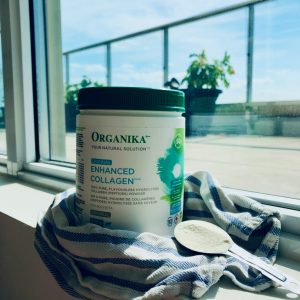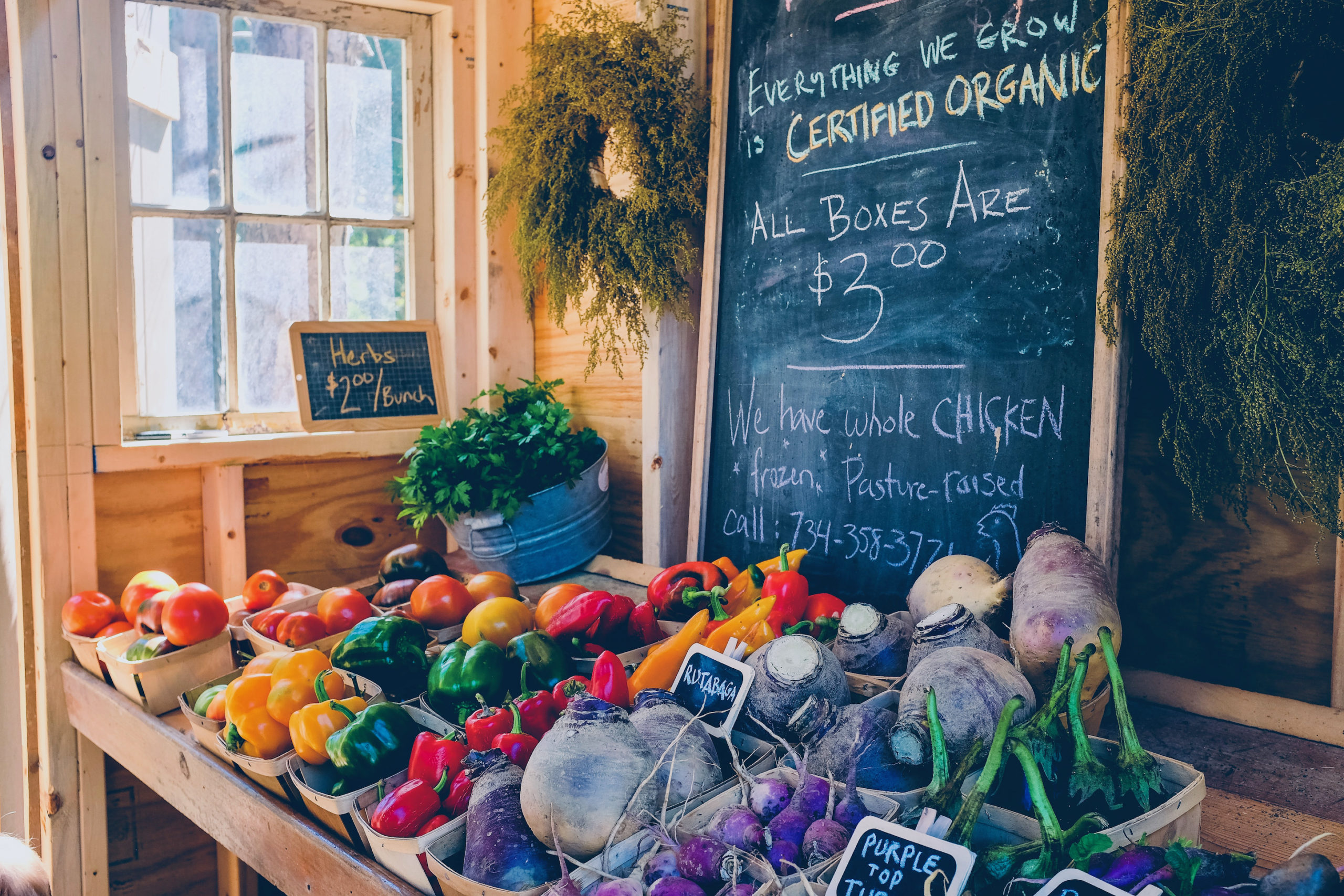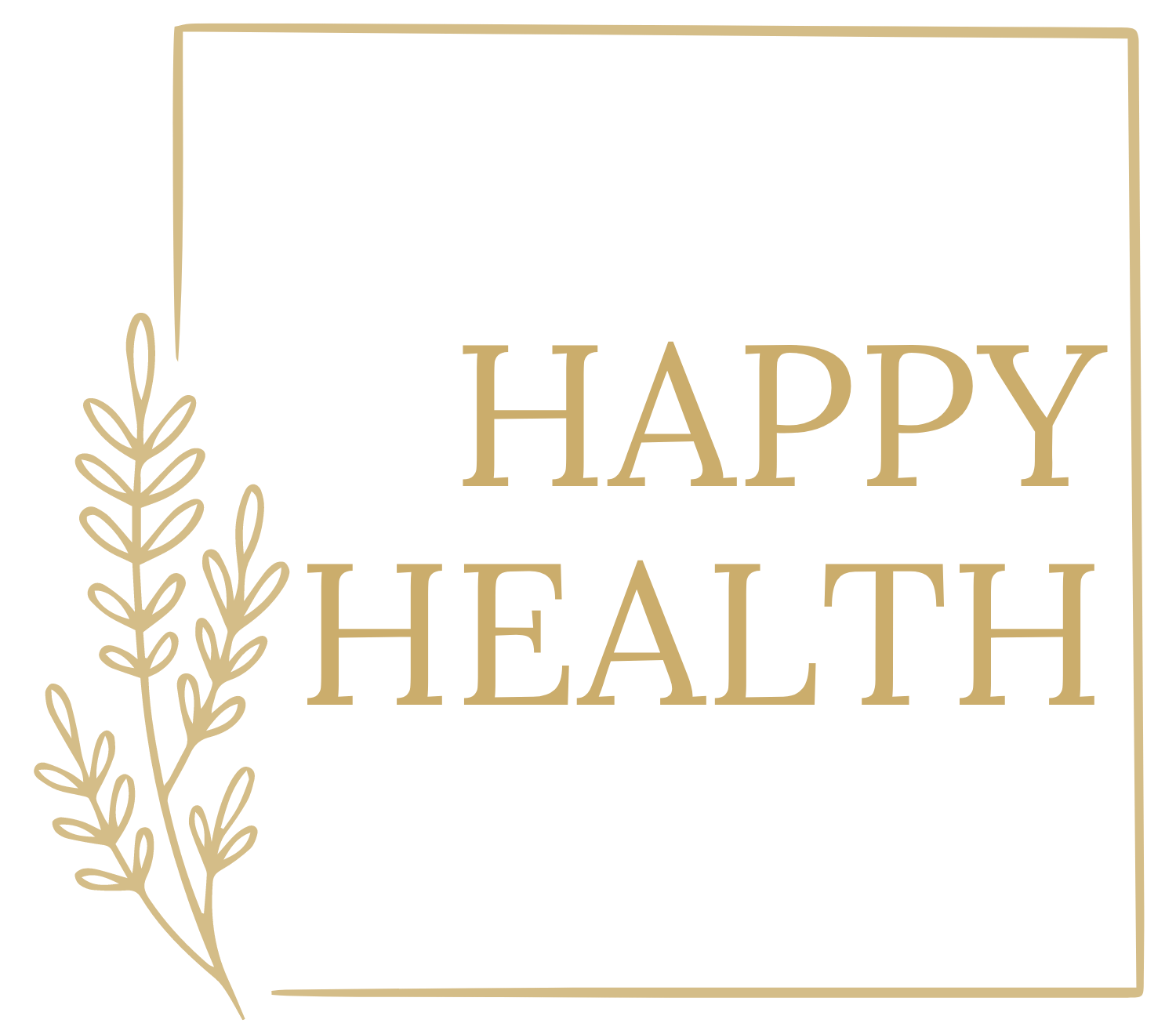
Elevate Your Glow: A Guide to Collagen Powder and Healthy, Clear Skin
Collagen. Have you heard of it? It seems to be cropping up everywhere with claims around skin health, joint health, hair and nail growth and
Growing up, I was lucky to spend much of my time on my family’s local farm that my grandparents purchased shortly after immigrating to Canada. They have grown the land to become quite the establishment and I have always appreciated farm living as a result.
It opened my eyes to the amount of work and care that needs to be put into growing our food and gave me the ability to look beyond the final product and the grocery store packaging. There has also always been something about eating produce grown straight on our farm.
It All Starts on the Farm
The first step in nourishing our bodies comes from the amount of care and labour around the growth of our foods. They are after all, living organisms that are equally impacted by their environment similar to how you and I are. If we have a drought, then the crops won’t grow to their potential, if we spray them with harsh pesticides then they will absorb these and if we starve them of essential nutrients then we will see this in the quality of our harvest and the nutritional content of the crop.
Our modern-day farming practices also directly and indirectly affect our environment through the soil, air and water run-off. All this can greatly affect their nutrient content and our health as a result.
The soil that our food is grown in is especially important as it actually maintains a very similar structure to the human microbiome, called the rhizosphere. Both the microbiome and rhizosphere require proper nourishment via vitamins and minerals as well as a healthy environment to really thrive. If the soil is thriving, then we can rest assured that the plant is also thriving and jam packed with nutrients!
More Nutrients
In fact, studies have confirmed that organic foods can contain more nutrients. This is especially true when it comes to vitamin C, iron, magnesium and phosphorus. We also now know that the nutrients in our foods have steadily decreased over the years in North America. For example, tomatoes now contain 70% less vitamin C than they once did, potatoes have lost almost all of their vitamin A and present-day broccoli has lost 45% of its vitamin C content.
Common day radiation practices can also further deplete food of nutrients and the irradiation of our foods require further study on the effects they can have on humans. Currently, these practices are recognized as safe to a certain level although Canadian regulations do not account for the accumulation of these practices when consumed on a daily basis.
Beyond the Nutrients
Not only that, but conventional crops will often be exposed to synthetic sprays and herbicides such as glyphosate, the active ingredient in the herbicide, Round-up Ready. The use of this herbicide was re-evaluated by Health Canada in 2017 due to evidence suggesting carcinogenic effects as the International Agency for Research on Cancer (IARC) had deemed the herbicide as possibly carcinogenic while the European Union is currently working on phasing out its use. To date, Health Canada has granted continued use and sale of glyphosate containing products in Canada.
Nowadays, it is also not uncommon to see the use of GMO seeds in conventional crops despite studies that question its effects on our genes, cancer risks and allergenic effects.
Conventional farming in Canada also allows the use of antibiotics in our meats. Animals are given some time off of the antibiotics prior to making their way to the grocery store although they can still contain antibiotic residues. These residues when consumed daily by us can promote antibiotic resistance and the proliferation of “super bugs”.
Studies have shown organic foods contain more vitamin C, iron, magnesium & phosphorus.

Organics – The Nitty Gritty
All that being said, let’s take a closer look at what exactly it means to have organic foods. In Canada, our organic standards are viewed as equivalent between the USA and the European Union. These standards are upheld by several third party certification bodies such as EcoCert, Organic Crop Improvement Association (OCIA) and Quality Assurance International (QAI). Our Canadian standards are quite extensive and when you purchase organic foods you can be sure of the below:
Guaranteed in all organic foods:
Not guaranteed in organic foods:
Look for Some of these Symbols:
Generally speaking, organic food regulations currently focus on the growth and environment of the food itself but have yet to expand to any guarantees around the farm’s sustainability or worker practices.
How to Add More Organics to your Life
Start small! Remember change doesn’t have to happen overnight and it doesn’t have to be an all or nothing approach. Each time you choose organic over conventional, you are making a difference to your health and your environment. Your choice is your voice and every positive choice counts!
Do you eat organic? What might stop you from purchasing more organics that I haven’t mentioned here? Let me know below or by tagging me on instagram @happyhealthcc or #happyhealthcc!

Caroline is a Registered Holistic Nutritionist (R.H.N.), certified Culinary Nutrition Expert (C.N.E.), Les Mills RPM instructor and Founder of Happy Health. She founded Happy Health in response to her own health struggles with the goal of sharing all that she knows so that you can be super CEO, supermom and super healthy!
She is based in Toronto and is currently studying for the R.H.N. designation. When Caroline is not working on her passion of all things nutrition, she contributes to the alternative investments industry as the Vice President and Co-founder of the Canadian Association of Alternative Strategies & Assets (CAASA).

Collagen. Have you heard of it? It seems to be cropping up everywhere with claims around skin health, joint health, hair and nail growth and

Are you struggling with the daily discomfort and frustration of perioral dermatitis? If you’re anything like me, then you know that perioral dermatitis is one

Perioral (periorificial) dermatitis is a red rash that circles your mouth. Your skin can be scaly, dry and flaky with swollen, inflamed bumps called papules…Perioral

This Post Has One Comment
Pingback: Holiday Gift Guide for the Wellness Foodie in your Life – Happy Health